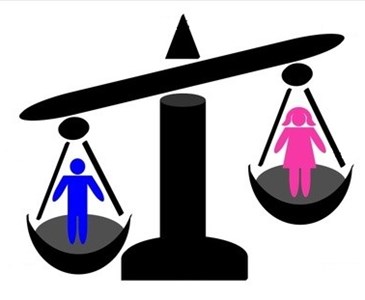Men in Expatriation : still a men’s business
In my previous article (Partners of Expatriates: These Lost Talents), I mentioned a significant number :
92% of accompanying partners are women. In other words, in only 8% of cases of expatriation, it is the man who follows his wife abroad.
When one has to choose between the career of one or the other, it is often the career of the man who prevails.
Between social codes and stereotypes, we will discuss a thought-provoking subject: male/female parity in expatriation.
Disparity for men/women : some key data
In most cases, during an expatriation where men are following their partner, the latter will find better positions when they follow their spouse, than the women following their husbands
Men find a full-time position in 83% of cases, , compared to 52% for women
The position found by men is consistent with their previous position, in 64% of cases, compared to 54% for women
To find a job, 11% of men receive help from the expatriate company, compared to 4.5% of women.
What are the causes of these inequalities ?
Although women account for half of the labour force, disparities in expatriation remain. Taboos still rooted in the minds of women, of their partners but also in the minds of recruiters, caused the latter .
Inequality of opportunity is the only consequence of these pre-established ideas.
The predominance of man’s career
As we have seen, more women are sacrificing themselves and their careers for the benefit of their partner and family life. But this is very often imposed by company codes :
Man’s career is seen as more important, especially because their pay is higher
Codes and habits want the man to work and support the household
It is socially more difficult for a man to be “house husband” and inactive, but much more logical and acceptable that this is the role of the woman
It is therefore difficult for a man to agree to push the traditional social norm of the family
Women put up barriers themselves
In the 40/45 age group, this is where the least number of male expatriate companions is found. This is the moment when a man’s career is at its peak. But this is not also the case for women. However, they self-censor:
Women refrain from applying to jobs and tend to think that it is not their role to go on an expatriation on the one hand and on the other to accept that their husband sets aside their own career
Compared to their male colleagues, they also feel that they will have no chance of being selected,
They feel pressure and fear that they will not be able to reconcile career, family life and expatriation
In many countries, they suffer from the weight of traditions and the impact of motherhood
Related to mobility, women are reluctant to be the cause of the change for their family,
They fear that they will have to be the sole financial support of the household.
Inequality rooted in international business mobility policies.
For the same position, businesses will tend to favour a man over a woman.
Businesses favour men because women are “perceived” as being less pro-active in terms of expatriation.
Because of how society is shaped, the mobility teams think that men will see fewer constraints to disrupt daily life and family life in order to leave for expatriation.
Recruiter’s stereotypes : men ready for expatriation
Recruiters feel that women will not want to leave because they are more reasonable and less ambitious than men.
Recruiters also consider female expatriation to be more risky, as women would could have « more difficulty » adapting to their new environment, to be accepted by collaborators in the host country.
Taking into account the customs and traditions of the host country, HRDs will be more reluctant to send a woman to Muslim countries in Africa or the Middle East.
Stimulated by some companies that show the example, expatriation for women certainly evolves. But it is still up to companies to put in place a favourable framework for expatriation allowing women to reconcile family life and international careers.
Since women are more concerned about their partners’ careers, businesses must take into account the problem of dual careers and support expat partners in the process of adaptation and job search.
It is also up to women themselves to become aware of their value and to all to remove clichés and presuppositions.
Armelle Perben
Dirigeante Absolutely French
armelle@absolutely-french.eu
Sources :
**par Expat Communication et la Caisse des Français à l’Étranger (CFE)
https://www.lenouveleconomiste.fr/lesdossiers/lexpatriation-au-feminin-14534/
https://www.expatcommunication.com/impact-de-lexpatriation-couple-double-carriere/
https://lepetitjournal.com/expat-pratique/famille/expat-quand-le-conjoint-suiveur-est-un-homme-22210
http://madame.lefigaro.fr/societe/carriere-mari-expatriation-couple-travail-020316-113105
Retrouvez Absolutely French sur :











Comments by Absolutely
Les fêtes en France
Hello Koby, of course, you are welcome to share it ❤️
Conjoint d’expatrié, comment s’intégrer en France?
Thank you Wyatt! Are you also an expat partner? An ...
5 millions de femmes expatriées : conjoints d’expatriés
Merci Vieira Elisangela, pour toutes les femmes expatriées! Nous avons besoin ...
Alexandre Besombes – Unique Paris, conciergerie de luxe
Hello @IrenStymn, in Absolutely French or in Unique Paris? It's ...
Les fêtes en France
Thank you Gavin! We love your comment! We will continue and ...